A day in the bangala
Jeddah's fish market
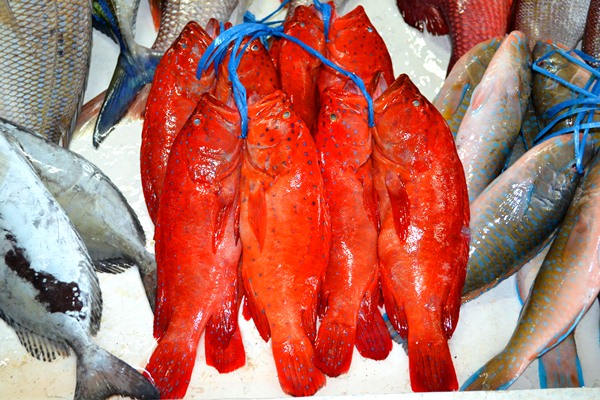
Get your nose prepared, wear closed shoes, put nothing valuable on, and get ready to wake up early to visit one of Jeddah’s more interesting spots: the fish market, or Bangala for aficionados.
Early mornings are always busy and chaotic in the Bangala. The stands receive the night’s catch from boats coming back, usually from Southern Jeddah or the north, or from places outside the country, like Yemen and Oman. Each shop buys its stock directly from the auction floor on the quay. A strange energy emerges from this activity, as fishmongers come and go like honeybees in their hive. Some bargain to get better prices, others are busy carrying the fish, sorting them out and scaling and gutting them.
The Bangala is one of the biggest modern fish markets in the Middle East. It lately underwent a huge process of modernisation, including expanding the area of the market. In addition, all procedures of taking care of the fish and making it ready for consumption have been included in the same zone. There are now 70 to 80 tons of fish per day passing through the market, and over 500 employees work there.
In the future, the market plans to expand even more, and the government has decided to spend 25 million riyals ($6.7 million) to open an institute for young Saudis to work or become fishermen. Today, the majority of workers in the Bangala are foreigners. Therefore, in many other sectors of the country, a process of Saudisation is scheduled to take place soon.
Ismail, an Indian salesman, explains the origin of the word “bangala,” which remains a mystery for most. It comes from the English word “bungalow,” which was misheard and pronounced “panglo,” and then transcribed into Arabic as “bangala.”
In the entire market, there are more than 100 stalls. Passing by some of them and watching vendors constantly spraying the fish with water to make them look fresh, one cannot help but notice the bright colours and the huge variety of species these animals come in. Indeed, the Red Sea is well-known for its exotic marine life. All sizes of fish can be found at the market, as well as spine lobsters, crabs and other inhabitants of the sea. This morning, several workers are gathered around a race of two lobsters, which gives them a few minutes break.
Bargaining for the price of the fish is a skill in itself. In this regard, it is easy to tell newbies to the market from those who usually come and know the prices very well. The value of different fish and seafood can differ a lot from one place to another, sometimes decreased by 40 percent of the price. Vendors make sure to keep an eye at neighbouring stalls: they follow the bargaining process and lower their prices even more if they see that a client is about to buy from someone else for a better price.
3 thoughts on “A day in the bangala”
Leave a Reply
You must be logged in to post a comment.







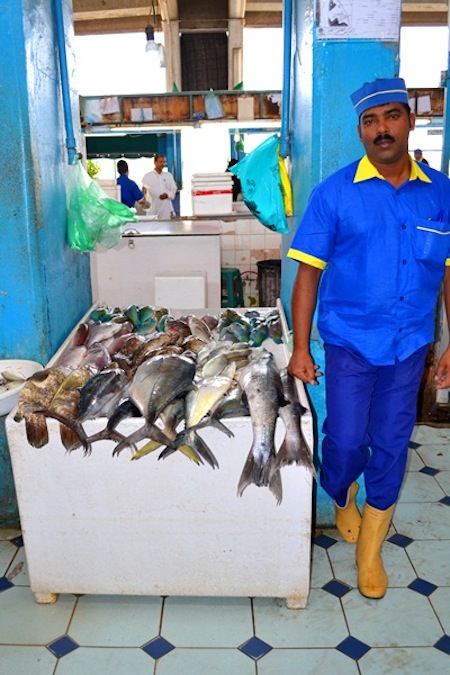

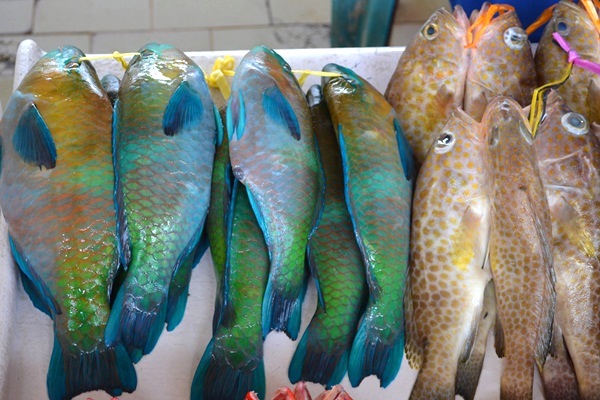
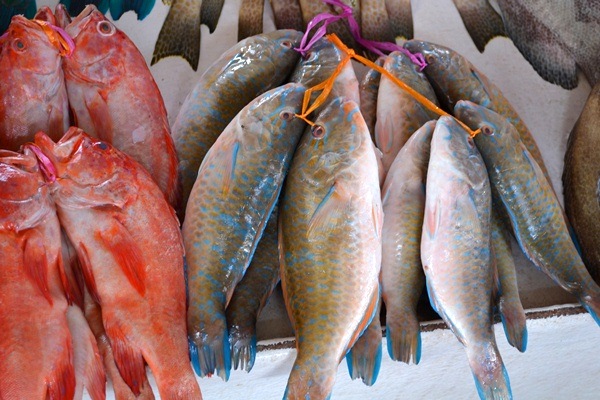
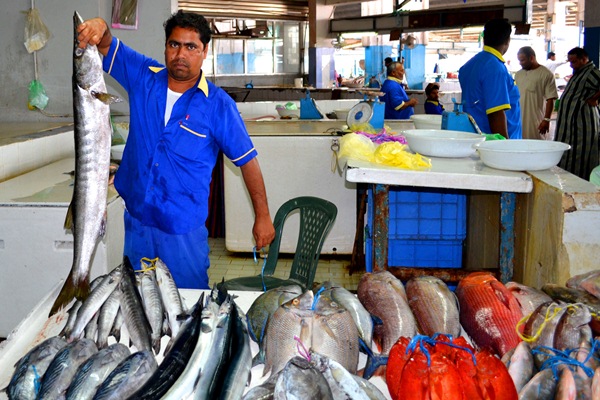
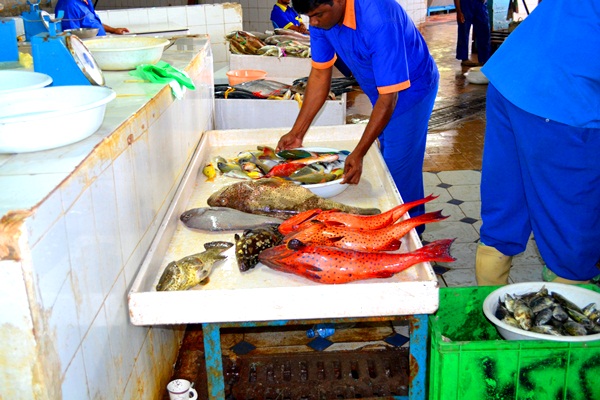
السلام علكيم : انا عايز اتعمل معك فى بعض الاسماك